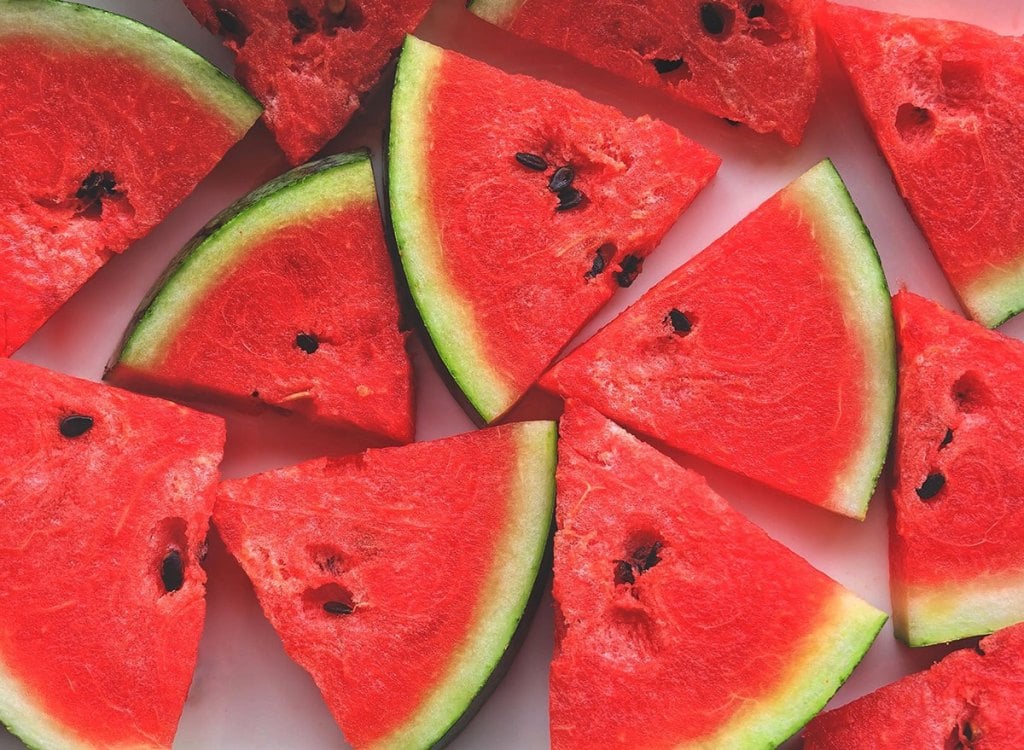New research, published in the scientific journal Nutrients , has found that people who eat more watermelon consume more essential nutrients, and may specifically reduce their risk of heart disease, according to health news site Healthline.
The authors analyzed data from the 2003–2018 US National Health and Nutrition Examination Survey (NHANES).

A new study suggests that eating watermelon may be much better for you than you think.
They found that people who ate watermelon had higher levels of essential nutrients including fiber, magnesium, potassium, vitamin C and vitamin A, as well as lycopene and other carotenoids.
At the same time, people who ate watermelon also had lower intakes of added sugar and total saturated fatty acids.
In particular, eating watermelon can also help improve water retention and reduce the risk of heart disease, according to Healthline.
The author, Kristen Fulgoni, a research analyst at the University of Tennessee (USA), will present the research results at the annual meeting of the American Dietetic Association, Nutrient 2023, held from July 22 to 25 in Boston (USA).
Health Benefits of Watermelon

Watermelon is a great fruit for hydration (with its high water content) and is rich in vitamin C, magnesium, calcium and potassium.
Watermelon is high in water, almost fat-free, and a good source of essential vitamins and minerals. Eating watermelon provides the following health benefits:
- Lower blood pressure
- Reduce insulin resistance
- Reduced muscle soreness (faster recovery)
- Improve digestion
- Beautify skin and reduce inflammation.
- Watermelon is also good for the heart.
Watermelon is a great fruit for hydration (with a high water content) and is rich in vitamin C, magnesium, calcium and potassium, says Kristin Kirkpatrick, RD, a nutritionist and consultant for the Health Nutrition Services at the Cleveland Clinic.
It's also low in sugar, which contradicts the idea that eating watermelon causes blood sugar and insulin spikes, explains Kirkpatrick.
She explains that the reason watermelon is good for the heart is because it is full of lycopene, a plant-based antioxidant.
Research shows that lycopene helps reduce the risk of developing heart disease or dying early from heart disease, according to Healthline.
Studies have shown that 1.5 cups of watermelon contain about 9 to 13 milligrams of lycopene. That's about 40 percent higher than in tomatoes, says Kirkpatrick.

Watermelon is an especially good source of L-citrulline, which has been shown in studies to lower blood pressure and help prevent clogged arteries.
It's also high in citrulline, an amino acid that dilates blood vessels and may promote muscle growth, adds Kirkpatrick.
Julie Cunningham, a registered dietitian and diabetes educator based in the US, also said: Watermelon is an especially good source of L-citrulline, which has been shown in studies to lower blood pressure and help prevent clogged arteries, according to Healthline.
Additionally, Kirkpatrick recommends incorporating plenty of healthy fats (like nuts and extra virgin olive oil) as well as high-fiber foods, like beans. At the same time, try to keep added sugars, refined grains, and fried foods to a minimum.
Source link










































































































Comment (0)